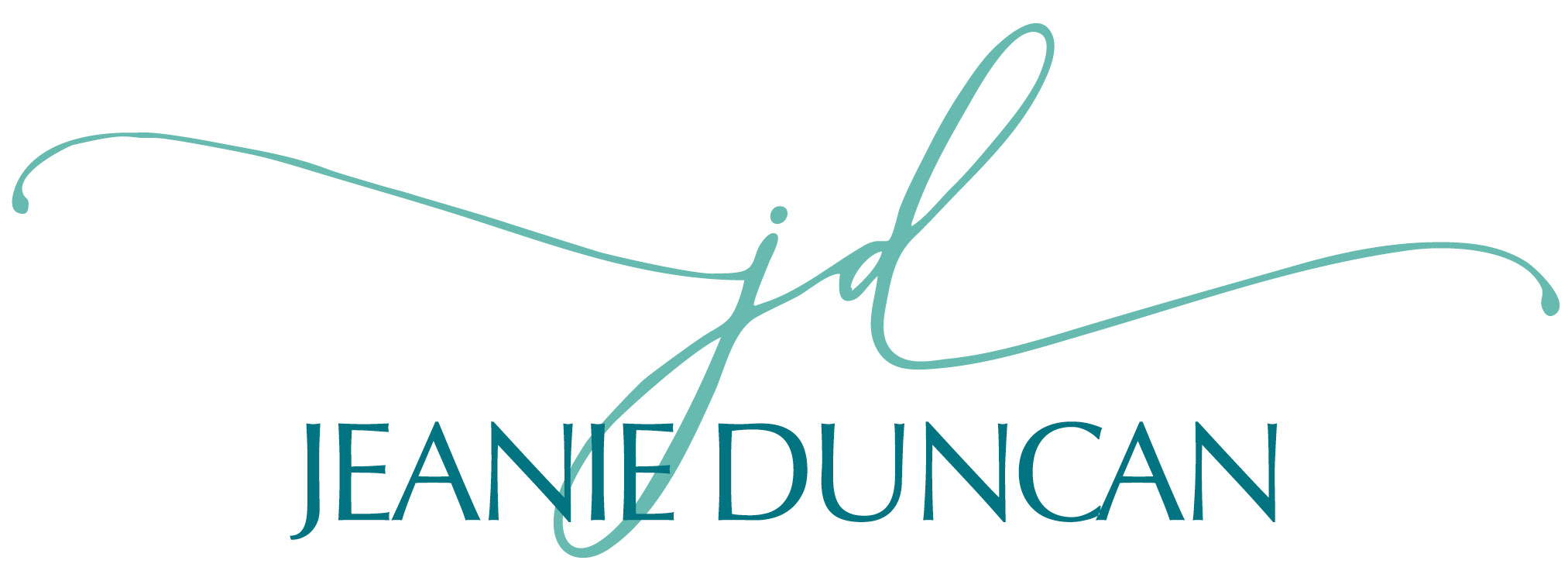
Oct 6, 2014 | Coaching

Individuals come to coaching via different pathways and that path can make a big difference whether you meet it with openness or resistance, or a point somewhere in between. One thing for certain, to be successful, coaching cannot be forced.
Your perception of coaching greatly affects your readiness to benefit from having a coach. If it’s just a status symbol, a job perk, or a development tool being prescribed to you, it’s less likely that you’ll be open and commit the time and effort it takes to assess and change your behavior.
If you believe that your organization or boss is punishing you by asking you to get coaching, you may feel that it’s demeaning or a waste of time. But if you see coaching as a powerful tool to cultivate self-awareness, tap into your strengths, and facilitate learning, you’ve taken the first step toward realizing its value and benefit. It’s a good idea to assess your readiness for what will be a serious commitment, and at times an uncomfortable experience, as you stretch and grow through a coaching relationship.
Review the following and consider your response to help you determine your coaching readiness:
- I have or can make available the time for regular coaching sessions and for any action items that a coach might request, such as goal setting, assessments, and development activities.
- I want to make changes for myself, not for someone else.
- Coaching is happening at the right time and place in my life.
- I trust in the coaching process and believe that it will serve my learning and development.
- I am willing to eliminate or modify self-defeating behaviors that limit my success.
- I am open to receiving and reflecting on feedback that supports my growth and development.
- Hiring a professional coach is not a sign of weakness, but a worthwhile developmental strategy and worth the investment.
- I don’t feel resistance to engaging a coach and believe that coaching will make a difference.
In addition to the above points in considering a coaching relationship, there are challenges and complexities that arise in your life and work that can make it especially timely to seek external support and a strategy partner through coaching. You and/or your organization may be:
- Experiencing significant change and transition.
- Stuck, or not growing as you believe you could be.
- Unclear on where you need or want to be in five years.
- Experiencing increased complexity in your role and organization.
- Seeking a confidential, safe space where you can express concerns and challenges.
- Working too hard for the results you’re getting.
- Dealing with a high degree of stress, which is taking toll on your health and relationships.
- Unable to build a great team you trust and that works well together.
- Struggling with ‘managing it all’ and maintaining boundaries.
Understanding why you seek coaching and what you bring to the coaching relationship will make you more effective as a partner in creating an optimal experience. Think about your situation, motivation, learning style, and ability to use resources and relationships for growth. Now may be the ideal time to explore options for your growth and how coaching can be a significant accelerator for it.
 About Jeanie Duncan: Jeanie is President of Raven Consulting Group, a business she founded that focuses on organizational change and leadership development in the nonprofit sector. She is a senior consultant for Raffa, a national firm working with nonprofit clients to lead efforts in sustainability and succession planning, executive transition and search. Additionally, Jeanie serves as adjunct faculty for the Center for Creative Leadership, a top-ranked, global provider of executive leadership education.
About Jeanie Duncan: Jeanie is President of Raven Consulting Group, a business she founded that focuses on organizational change and leadership development in the nonprofit sector. She is a senior consultant for Raffa, a national firm working with nonprofit clients to lead efforts in sustainability and succession planning, executive transition and search. Additionally, Jeanie serves as adjunct faculty for the Center for Creative Leadership, a top-ranked, global provider of executive leadership education.

Sep 29, 2014 | Career, Coaching, Leadership

I believe deeply in the value and impact of coaching. Yet in my work, I’ve discovered that many people have never had a coaching relationship and aren’t quite sure what to expect. I would like to share more about leadership coaching, possibly dispel some myths, and offer perspective about when it might be right for you.
One way I like to think of leadership coaching as similar to how an elite athlete uses a coach. A good coach helps leaders develop clarity of purpose and focus on action. The relationship is a formal engagement in which a qualified coach works with an organizational leader in a series of dynamic, confidential sessions designed to establish and achieve clear goals that result in improved effectiveness for the individual, and often for his or her team and organization.
And to better understand what coaching is, it can be helpful to briefly highlight what coaching is not:
- Counseling or therapy, which is focused on insight into history, psychological healing, pain resolution, and coping mechanisms.
- Consulting, where a consultant offers external expertise to assess, analyze, and offer technical advice or recommendations to solve a particular problem or challenge.
- Training, with the intended outcome to impart knowledge from an expert to a student where the student gains or sharpens specific skills.
Every coaching relationship is unique due to the specific situation of the person seeking coaching and the coach’s approach. However, there are some key elements you can expect with the engagement.
Contracting – This refers to everything that’s involved in setting up the actual coaching relationship and the overall process, from when and how often to meet, whether you’ll meet in-person, by phone or other virtual platforms, to fee structure and billing, and how to handle appointment scheduling and changes.
Boundaries and Confidentiality – This includes such elements as how information is handled (confidentiality and report expectations) and how the coaching relationship fits into the existing network of relationships. Information provided by the client is kept strictly confidential except as otherwise authorized in writing by the client. For example, the coach and client may agree that the goals or results of the coaching work can be reported to his/her boss or other organizational representative. Also, the coach may support the client in preparation of reports he/she makes to a boss or other stakeholder.
Mutual Role Clarity – A primary value your coach brings is helping you decide and act more effectively, not thinking or deciding for you. Your coach will be an ally, supporter, and sounding board. You can expect him/her to be direct and honest, asking powerful questions and making empowering requests that support your desired outcome. As the client, you’ll get the most from your coaching relationship if you show up engaged, willing to examine yourself – your values, beliefs, behaviors, and impact, and are open to make changes necessary to become more effective. Its important to realize that coaching is a comprehensive process that takes time and may address any area of your life, including specific career aspirations, business projects, leadership, or personal topics such as finances, health, and relationships. Even if your coaching engagement is formed in a professional work context, you bring your full self to the experience and therefore “whole life” is taken into account.
I first hired a coach when I was considering applying for a top leadership position in my organization. I wanted to pursue the opportunity and felt I needed a partner with whom to review it from all angles – someone removed from the situation, who would ask me thought-provoking questions, and help me confirm that I was the right person at the right time.
Since that first experience, I’ve hired coaches over the years and now make it a part of my ongoing personal and professional development to retain a coach. The following are some situations where a coach can be particularly helpful:
- You and your organization are experiencing significant change and transition.
- Your organization is not growing as you believe it could.
- You’re unclear on where you need or want to be in five years.
- You’re experiencing increased complexity in your role and organization.
- You seek a confidential, safe space where you can express concerns and challenges.
- You are working too hard for the results you’re getting.
- Stress is taking toll on your health and relationships.
- You’re not spending time on the most productive tasks.
- You haven’t been able to build a great team you trust and that works well together.
- You’re not enjoying your work as much as you once did.
- You struggle with whole life balance.
Using a leadership coach as a developmental partner provides a rich opportunity to learn, reflect, change, and grow. Like any relationship, it’s important to know what to expect and to co-create a constructive alliance. Through your work together, you develop the skills, behaviors, and knowledge enabling you to increase your effectiveness.
 About Jeanie Duncan: Jeanie is President of Raven Consulting Group, a business she founded that focuses on organizational change and leadership development in the nonprofit sector. She is a senior consultant for Raffa, a national firm working with nonprofit clients to lead efforts in sustainability and succession planning, executive transition and search. Additionally, Jeanie serves as adjunct faculty for the Center for Creative Leadership, a top-ranked, global provider of executive leadership education.
About Jeanie Duncan: Jeanie is President of Raven Consulting Group, a business she founded that focuses on organizational change and leadership development in the nonprofit sector. She is a senior consultant for Raffa, a national firm working with nonprofit clients to lead efforts in sustainability and succession planning, executive transition and search. Additionally, Jeanie serves as adjunct faculty for the Center for Creative Leadership, a top-ranked, global provider of executive leadership education.

Oct 1, 2011 | Leadership

Do you recall your first formal leadership development experience?
My first experience was in 2000 – I was sponsored by a local foundation to participate in the Leadership Development Program at the Center for Creative Leadership (CCL). I was 30, and I had been working for nine years, building a career in the nonprofit sector.
Up to that point, my leadership development experiences had been more informal – in school, on the athletic field, and over years of music lessons – all through interactions with insightful teachers and coaches.
In the early years of my career, I received leadership training from various bosses, mentors, and other seasoned professionals in the form of sage advice, best practices, and – most often – “in the moment” life lessons at an operational, grassroots level. My ‘classroom’ was “on the street,” “in the trenches,” and oftentimes in sink or swim situations…some of the greatest learning opportunities there are.
At 30 years of age, most of my professional development occurred when wearing many hats, trying new things, taking risks, and making my best efforts to exhibit courage in the face of fear. Progress and discoveries came as much by failure as by success.
Today, colleges and universities have more formally developed leadership programs and offerings for students; many are course requirements for undergraduate study. Students graduating and entering the for-profit workplace often begin on a career development track and are exposed early on to corporate leadership training programs, assessments, and executive coaches.
These kinds of critical opportunities, while assumed and plentiful in the corporate environment, are glaringly absent in the nonprofit sector. And even if available, many leadership programs are cost-prohibitive for many small to medium-sized organizations.
My formal CCL experience was made possible by a new funding relationship between CCL and a local foundation partnering to sponsor nonprofit executives’ participation in the Center’s Leadership Development Program. For me, it was life-changing. It was the first time in my career that I was exposed to behavioral assessments, 360-degree feedback, insight into my natural and adapted leadership styles, and in-depth analysis of my strengths, weaknesses, and blind spots.
After that one-week intensive, I was different. Armed with new, critical insight, it was as if the Vaseline had been wiped from my windshield. My discoveries and newfound vision:
- Augmented my leadership, management, and decision-making capabilities.
- Sharpened my abilities to value, work with, and manage others.
- Spurred me to create a career vision and goals to chart and navigate my course.
- Fueled my desire to gain increasing responsibility, ultimately helping me achieve my goal of leading a nonprofit arts organization.
- Ignited my interest in seeking out additional opportunities, including books and articles on leadership, other continuing education, and connecting to coaches and mentors.
“What if I had had a similar kind of formal leadership development experience in high school, or college – or in the first year or two of my career? What difference would it have made in my professional development, how I interacted with co-workers, teams and boards, and in my overall career track? I know the difference it made at 30 years of age. What if I had had the same experience at 20?
Today, I can only imagine that impact. It has prompted my own drive to help make leadership coaching opportunities available and accessible for students and young professionals. I believe we must reach teachers, coaches, and other mentors interacting with our young people and ensure they have the skills and training necessary to take advantage of the critical leadership teaching moments in everyday experiences.
I’m discovering exciting ways to be involved in the creation and delivery of such opportunities, including participating in CCL’s Young Women’s Leadership Program, the University of North Carolina’s student mentoring program, and working to help coach and develop the next generation of arts and culture leaders.
I encourage you to begin where you are:
- Seek out formal leadership development for yourself – early on and often; I guarantee it will be an eye-opening experience and have countless positive effects on your life.
- Surround yourself with trusted and respected mentors and consider working with an executive coach. You’ll be more purposeful and mindful of your career and life path, taking charge of your present and future direction.
- Get involved in positively influencing the life, education, and/or career of a young adult. You’ll receive as much or more than you give!
- Advocate for leadership development within the nonprofit sector. Encourage it as a priority in your workplace, among peers, and to funders to invest in and support leadership development opportunities.
 About Jeanie Duncan: Jeanie is President of Raven Consulting Group, a business she founded that focuses on organizational change and leadership development in the nonprofit sector. She is a senior consultant for Raffa, a national firm working with nonprofit clients to lead efforts in sustainability and succession planning, executive transition and search. Additionally, Jeanie serves as adjunct faculty for the Center for Creative Leadership, a top-ranked, global provider of executive leadership education.
About Jeanie Duncan: Jeanie is President of Raven Consulting Group, a business she founded that focuses on organizational change and leadership development in the nonprofit sector. She is a senior consultant for Raffa, a national firm working with nonprofit clients to lead efforts in sustainability and succession planning, executive transition and search. Additionally, Jeanie serves as adjunct faculty for the Center for Creative Leadership, a top-ranked, global provider of executive leadership education.

 About Jeanie Duncan: Jeanie is President of Raven Consulting Group, a business she founded that focuses on organizational change and leadership development in the nonprofit sector. She is a senior consultant for Raffa, a national firm working with nonprofit clients to lead efforts in sustainability and succession planning, executive transition and search. Additionally, Jeanie serves as adjunct faculty for the Center for Creative Leadership, a top-ranked, global provider of executive leadership education.
About Jeanie Duncan: Jeanie is President of Raven Consulting Group, a business she founded that focuses on organizational change and leadership development in the nonprofit sector. She is a senior consultant for Raffa, a national firm working with nonprofit clients to lead efforts in sustainability and succession planning, executive transition and search. Additionally, Jeanie serves as adjunct faculty for the Center for Creative Leadership, a top-ranked, global provider of executive leadership education.




